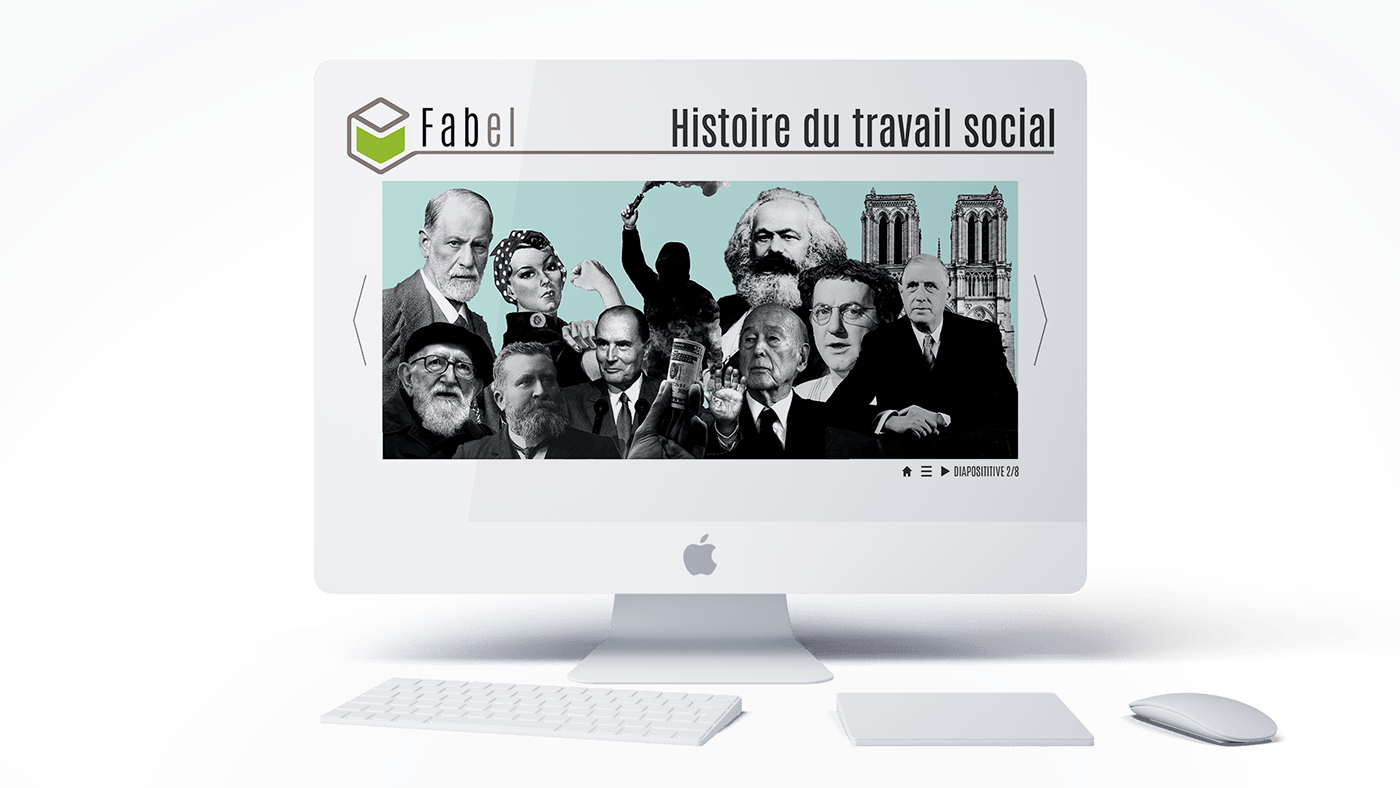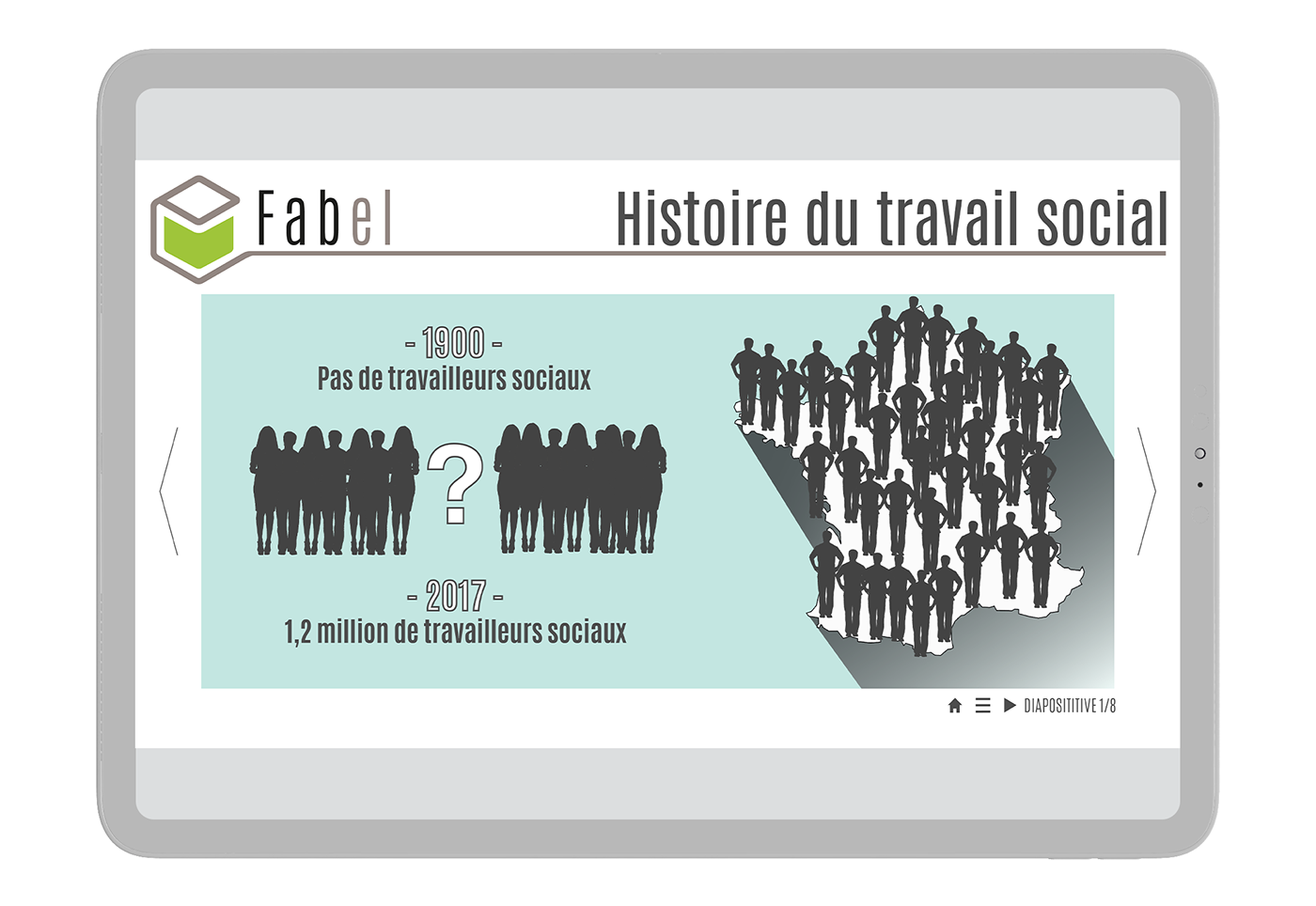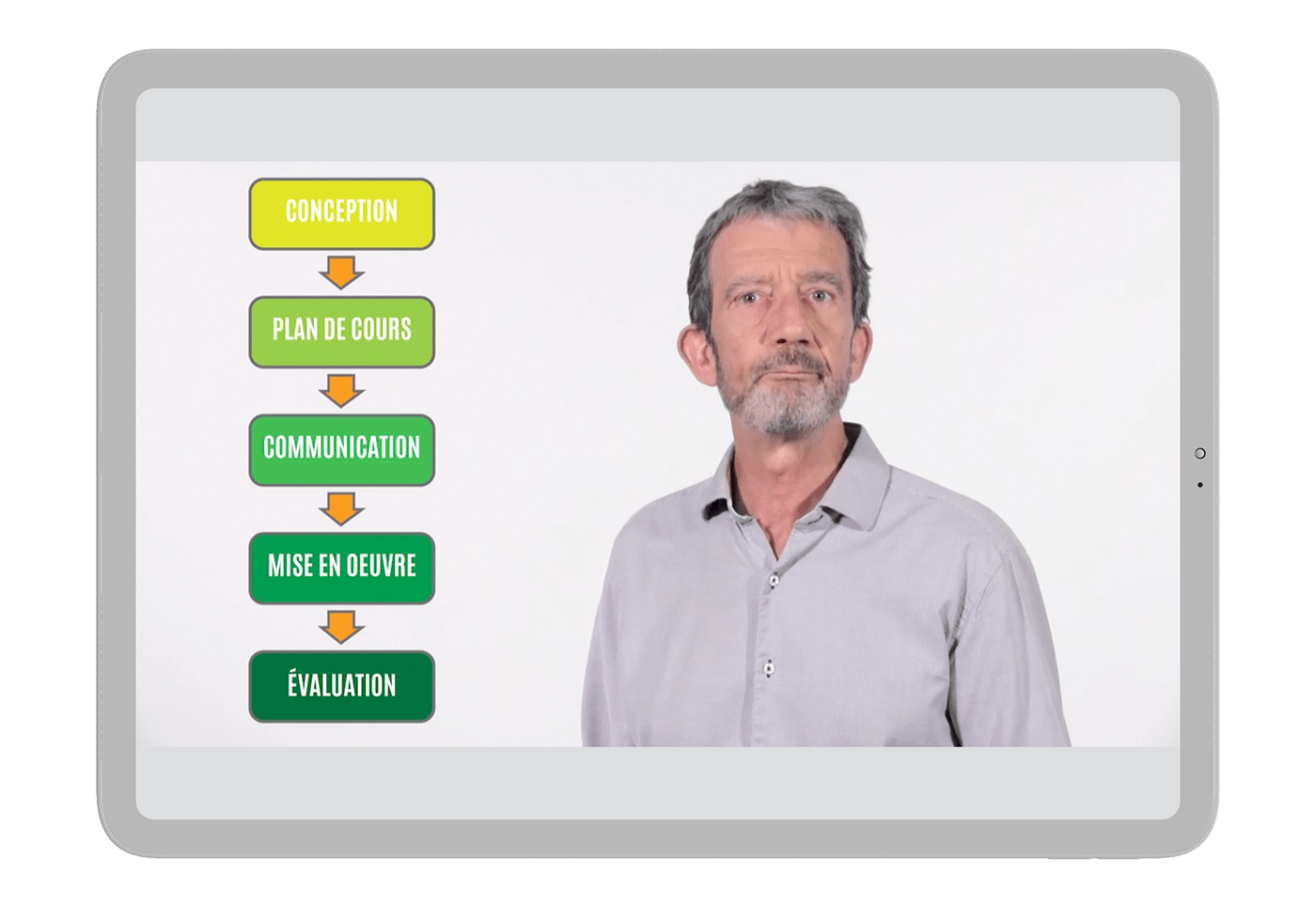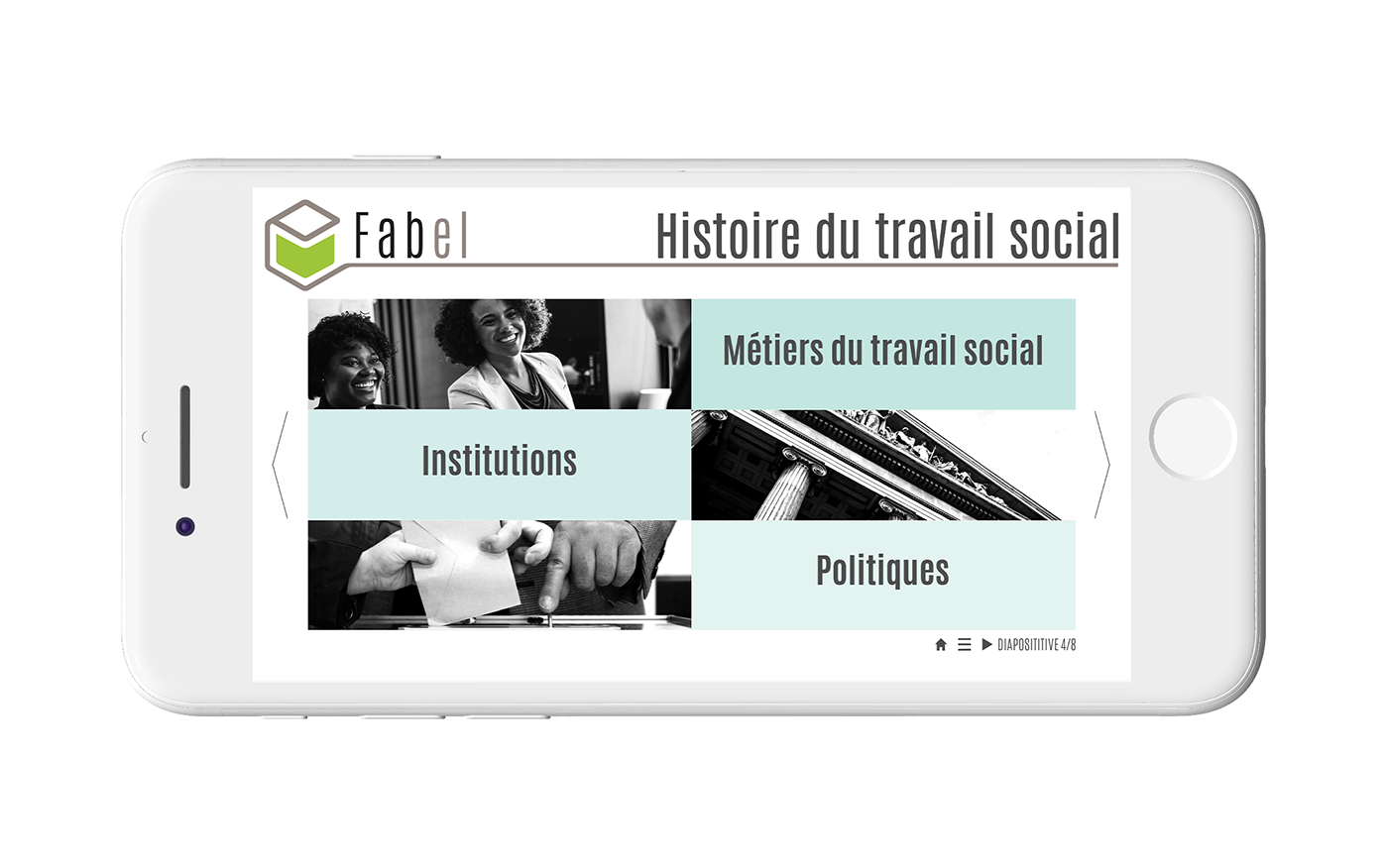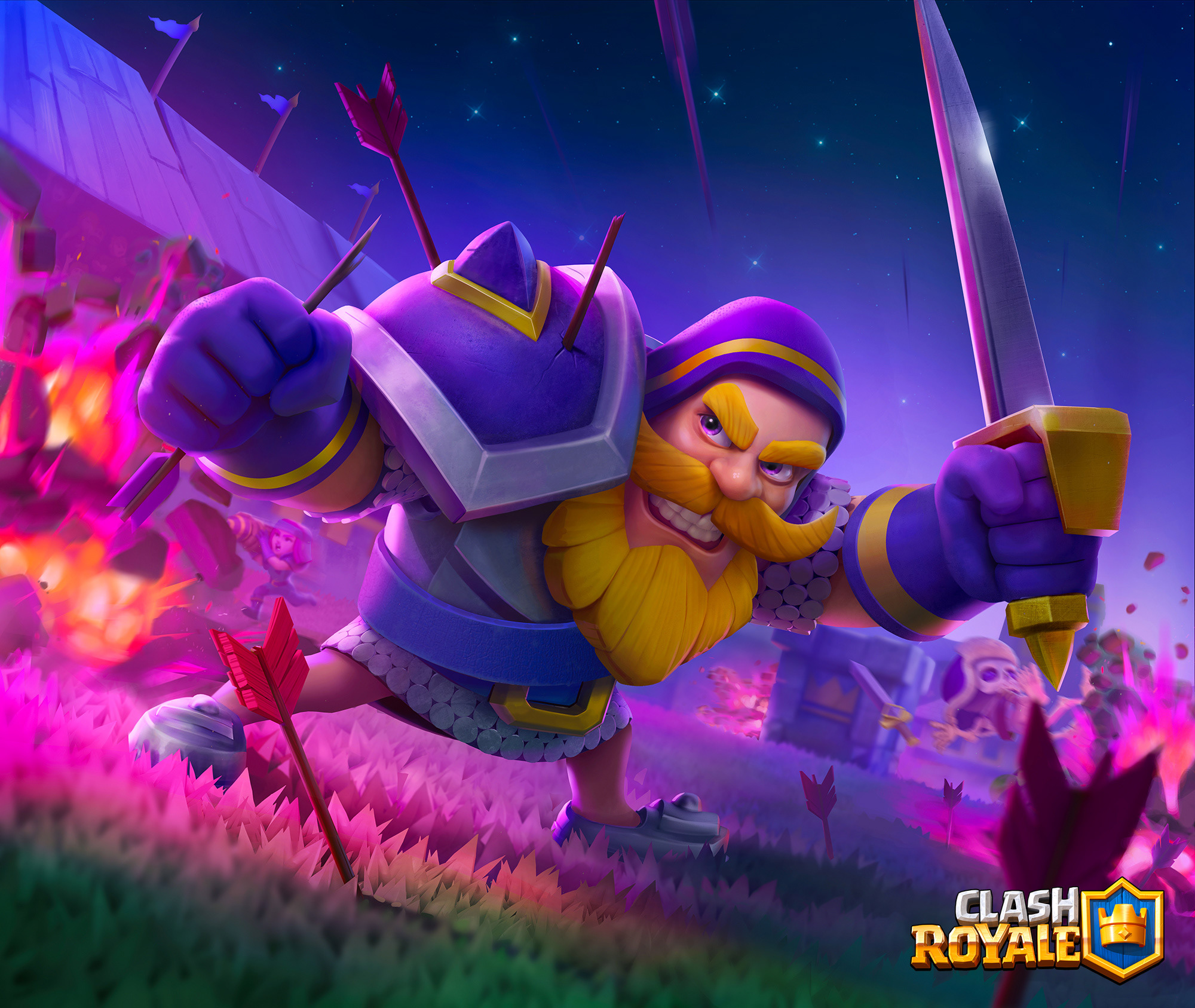
Fabel
Fabel is a young company designing e-learning programs for social workers. With 30 years spent in training social workers, Francis le Letellier noticed a distinct lack of e-learning training programs. So, he founded Fabel in 2018 and asked Kobayashi to design one of these programs.
Problem
E-learning is an increasingly popular learning tool. However, while the results of these programs are encouraging, there are still disparities in terms of program completion and engagement. A study reveals that 60% of company training managers regularly face a lack of commitment from their participants. This generally results in a shallow completion rate, with learners rarely going to the end of the training. The challenge is how to improve the learning experience so that it increases completion and engagement rates?
Objective
Create a captivating e-learning training experience on the theme of the history of social work in France. This program was intended for Fabel's client named EPSS, a training center for social workers. The learning path needed to be dynamic, attractive, and relevant to allow a high completion rate of the program and a stronger commitment than average. The success of the evaluation of this program will depend on the collaboration between Fabel and EPSS. Make a mobile version of the program.
I. Planning
Before starting to work on the design of this training program, we had to do a lot of research to find out what are the critical success factors of an e-learning training program and learner psychology. This research work was supplemented by a benchmark on programs that most closely resembled the field of social work: the medical field.
II. Exploration
Following this benchmark, Kobayashi defined an exploratory survey to get feedback from learners on their e-learning courses. User recruitment was done in a partner school of the EPSS, which had already set up e-learning programs for its students. A panel of 20 people (10 men and 10 women / 22-34 years old) agreed to answer the questionnaire anonymously.
It appears that the mandatory nature of these programs distorts the results of engagement and completion. Among the points to improve: the repetitive and unsurprising quality of these programs, both in its organization and in its graphic enhancement.
III. Ideation
Scientific research on attention and concentration and learner psychology revealed that, for a learning journey to be as efficient as possible, the learner must be surprised and be in a particular state of attention, awaiting the next event, who would surprise him, while maintaining focus. In agreement with Fabel, it was therefore agreed to design video, graphic, and typographic animations, which would try to keep the learners' attention by surprising them.
IV. Generation
Once the persona, the experience map and the user stories defined, we now can generate:
• Mockups
• Prototype
• Prototype
